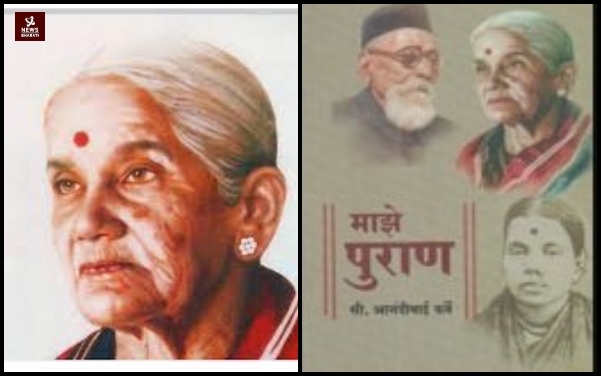Baya alias Anandi Bai Karve: The Incredible Journey, Everyone Needs To Know - IV
Total Views |
Baya's second marriage
Baya's brother probably did not approve of her second marriage. Her parents too had to face the displeasure of society, but they probably never complained, her mother-in-law treated her as a married woman, unlike other families. Shri Agarkar who wrote an article in ' Sudhakar ' stated that Baya's parents supported her second marriage, thus even they were boycotted and had to pay a fine of Rs 100. (Sudhakar was a Marathi periodical founded and edited by Shri Gopal Ganesh Agarkar in Pune in 1888. He always campaigned against the injustice of untouchability and the caste system and supported widow remarriage)

When Baya and Anna visited Murud,( Anna's native place) no one was ready to help them with a vehicle or would not offer water to drink, they had to stay at a horse barn, but Karve family had accepted the widow's remarriage as it knew Anna's resolve. Anna's mother specially treated Baya with great affection.
On 11th March 1893, the marriage was scheduled, 11th March, the foundation day of Sharada Sadan. A priest from Malvan performed the religious rites. (Now his home has a small museum dedicated to Anna) Pandita Ramabai organized a big ceremony, many guests were invited, the girls of Sharada Sadan participated with enthusiasm, and all dined together, Baya too never discriminated against people around her on the grounds of caste throughout her life. She thought that being human was the only consideration.
Baya noted that the poor or destitute widows were offered support by the Sharada Sadan, but the argument used to be that the people and the religion which doesn't offer help in difficult situations, should be changed. They were guided to get converted and surrender to Jesus. Some women accepted the conversion, but this attracted a lot of criticism, and many trustees resigned. Many parents stopped sending their daughters to Sharada Sadan, many discontinued the education of their daughters, and the number of girls reduced drastically. Later Sharada Sadan shifted to Kedgaon, a small village near Pune.
Baya observed that when Pandita Ramabai realized that there was no possibility of Baya and Anna getting converted, her interest gradually diminished.
The new phase of life
This widow's remarriage caused a lot of excitement and anger in the society. Even Baya was scared that someone might cause harm to Anna. Both of them had to face severe resistance and criticism in the society. It was expected that the children born out of such wedlock that is not approved by the social convention would not develop well but all the three sons of Baya were very upright. Throughout her life, she had to face the ire of society. She was given a different treatment due to the widow's remarriage. Many women would avoid treating her as equal to a married woman. Later Baya completed the nursing course, she always helped all the women around as a midwife, and this gradually helped change their attitude.
Baya would never nurse a grudge against anyone especially if it is related to her marriage. Anna's widow's sister-in-law ( who was a sister of his first wife) did not accept Anna's marriage to Baya.
She left Anna's home, but returned after a year and stayed in the Ashram at Hingane ( the karve Sanstha was known as Hingane Street shikshan sanstha then ) till her death.
After returning to Pune, Baya enrolled in the Hujurpaga High School ( a government boarding school in Pune, a well-known institution even today ). When Baya and her nieces used to walk down to school wearing footwear and an umbrella in hand, people would ridicule all of them. She joined 3rd standard, the school was in Budhwar Peth, and the home was I, Shaniwar Peth. Baya used to cook and look after all the family members. Baya and Anna helped many to gain education and settle in life. Baya described her home as a boarding. The concept was children whose parents remarried but were poor, should stay with the Karve family, and families with good financial backgrounds should donate money for their education. Thus it used to be a big responsibility for Baya.
Baya always thought that a woman should have at least 2-3 children, probably she thought that without children woman's life was incomplete. She had 3 sons, and they all were well-educated.
When we read how society treated Baya and Anna after their remarriage, one is surprised, but facing the ire of society was something they had to experience very often. Both of them never seemed to be angry, they just continued following what they believed in.



